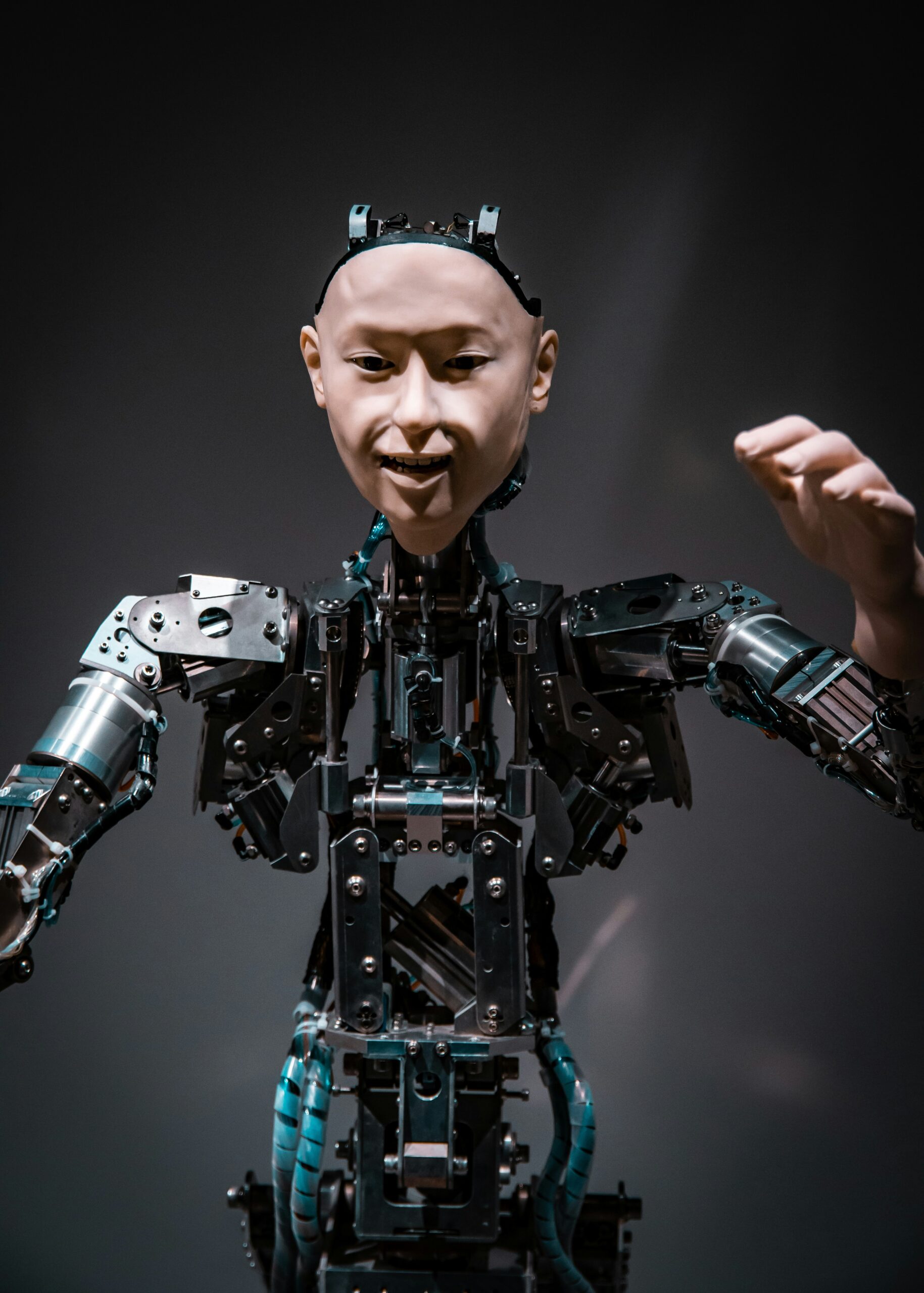The Evolution of AI: Past to Present
The journey of artificial intelligence (AI) can be traced back to the mid-20th century, emerging from a blend of computer science, cognitive psychology, and linguistic theory. Early concepts focused on the idea that machines could replicate human thought processes, leading to the development of algorithms that could learn and adapt. In the 1950s, pioneering figures like Alan Turing introduced foundational theories such as the Turing Test, which sought to evaluate a machine’s ability to exhibit intelligent behavior indistinguishable from that of a human.
Throughout the 1960s and 1970s, AI research saw significant growth, characterized by the implementation of symbolic reasoning and problem-solving techniques. The creation of programs like ELIZA and SHRDLU showcased early natural language processing capabilities, allowing machines to engage in rudimentary conversations. However, enthusiasm in the AI field waned during the ‘AI winter’ of the 1980s, primarily due to exaggerated expectations and a lack of computational power, which stunted advancements.
Social perceptions of AI have also evolved significantly. Initially regarded with skepticism and concern, AI is increasingly viewed as a valuable asset that has the potential to enhance productivity and improve quality of life. The integration of intelligent systems into everyday applications, such as virtual assistants and recommendation engines, demonstrates the profound impact AI has on modern society. Understanding the historical context of AI’s evolution offers insight into the technological advancements and cultural shifts that have shaped its current trajectory.
Transformative Impact on Industries
The integration of artificial intelligence (AI) across various sectors is poised to revolutionize traditional business operations, transforming the landscape of industries such as healthcare, finance, education, transportation, and manufacturing. Each of these sectors is leveraging the capabilities of AI to enhance efficiency, optimize processes, and foster innovation, marking a significant shift in how organizations operate.
In healthcare, AI systems are being utilized for predictive analytics, patient diagnosis, and personalized treatment plans. Machine learning algorithms can analyze vast amounts of medical data to identify trends and patterns, enabling healthcare providers to make more informed decisions. Additionally, AI-powered tools improve patient management by streamlining administrative tasks, thus allowing healthcare professionals to focus more on patient care.
The finance industry is also experiencing a notable transformation due to AI advancements. Financial institutions are increasingly employing AI for fraud detection, risk assessment, and trading algorithms. These applications not only enhance the accuracy of predictions but also speed up decision-making processes, providing a competitive advantage in the ever-evolving financial markets. Furthermore, robo-advisors leverage AI to offer personalized investment advice, making financial services more accessible.
In the realm of education, AI is reshaping personalized learning experiences. Intelligent tutoring systems analyze individual student performance to tailor educational content and feedback. This can significantly enhance engagement and outcomes while providing educators with valuable insights into student behavior and learning patterns. As a result, both teachers and students benefit from a more customized educational experience.
Transportation is another sector experiencing AI-driven change, particularly through advancements in autonomous vehicles and smart traffic management systems. These innovations promise increased safety, reduced congestion, and lower emissions, fundamentally altering how people and goods move across cities.
Manufacturing is harnessing AI to improve production efficiency through predictive maintenance, supply chain optimization, and automation. Smart factories, equipped with AI technologies, can monitor equipment performance in real-time, minimizing downtime and enhancing overall productivity. However, the integration of AI into industries is not without challenges. Ethical considerations, workforce impacts, and data privacy concerns must be carefully managed to ensure that the benefits of AI are realized responsibly.
AI in Everyday Life: Opportunities and Challenges
Artificial Intelligence (AI) has become increasingly integrated into everyday life, revolutionizing how individuals interact with technology and manage daily tasks. Smart home devices, powered by AI, offer remarkable conveniences, allowing users to control lighting, heating, and security systems from their smartphones. Personal assistants like Siri and Google Assistant further enhance daily productivity by helping with scheduling, reminders, and providing information through voice commands. Such advancements showcase the profound impact of AI in simplifying tasks and increasing overall convenience.
However, the implementation of AI in daily life does not come without its challenges. Privacy concerns have emerged as a significant issue, as the data collected by AI systems can lead to potential misuse. Users often find themselves navigating the balance between enjoying the benefits of smart technology and the risks of surveillance. Moreover, the rise of automated services has sparked discussions about job displacement. As businesses incorporate AI-driven systems to improve efficiency, certain jobs may become obsolete, leading to socioeconomic disparities and concerns about the future of employment.
Another critical aspect of the AI revolution is the digital divide, which refers to the gap between individuals who have easy access to digital technology and those who do not. As AI becomes more prevalent, the risk of widening this divide increases, potentially leaving marginalized communities further behind in a technologically advanced society. Addressing these challenges requires collaborative efforts across various sectors, including government, industry, and civil society, to develop policies that promote equitable access to AI technologies and protect individual privacy.
As we continue to embrace AI in our lives, it is imperative to remain vigilant about the implications it carries. With thoughtful implementation and a commitment to addressing the associated challenges, society can fully harness the benefits of AI while mitigating its risks.
The Future of AI: Ethical Considerations and Human-AI Collaboration
The rapid advancement of artificial intelligence (AI) presents numerous ethical considerations that stakeholders must address as systems become more integrated into society. One significant concern is algorithmic bias, where AI systems may inadvertently perpetuate existing societal biases due to biased training data or flawed algorithms. Such biases can lead to unfair treatment in areas like hiring practices, law enforcement, and lending, thereby compromising the principles of equity and justice. It is crucial to develop methodologies to identify, mitigate, and monitor these biases, ensuring that AI developments promote fairness rather than discrimination.
Transparency is another core ethical issue in AI development. Stakeholders including developers, businesses, and governments must strive to create AI systems whose operations are comprehensible and interpretable. The opaque nature of many AI algorithms makes it challenging to ascertain how decisions are made, leading to a lack of accountability. Creating transparent AI will help foster trust among users and provide a clear understanding of the decision-making processes involved. This necessitates collaboration between AI experts, ethicists, and policymakers to define the standards for responsible AI practices, incorporating diverse perspectives to shape equitable solutions.
Moreover, human-AI collaboration holds considerable potential for enhancing productivity and addressing complex global challenges. Implementing interdisciplinary approaches will be pivotal in harnessing AI’s capabilities while ensuring alignment with human values and ethical standards. Collaborative frameworks should engage diverse participants, including technologists, social scientists, and ethicists, who can together establish guidelines that prioritize ethical considerations. This approach will not only support effective AI deployment but will also create a more inclusive future where humans and AI systems work synergistically to benefit society as a whole.

